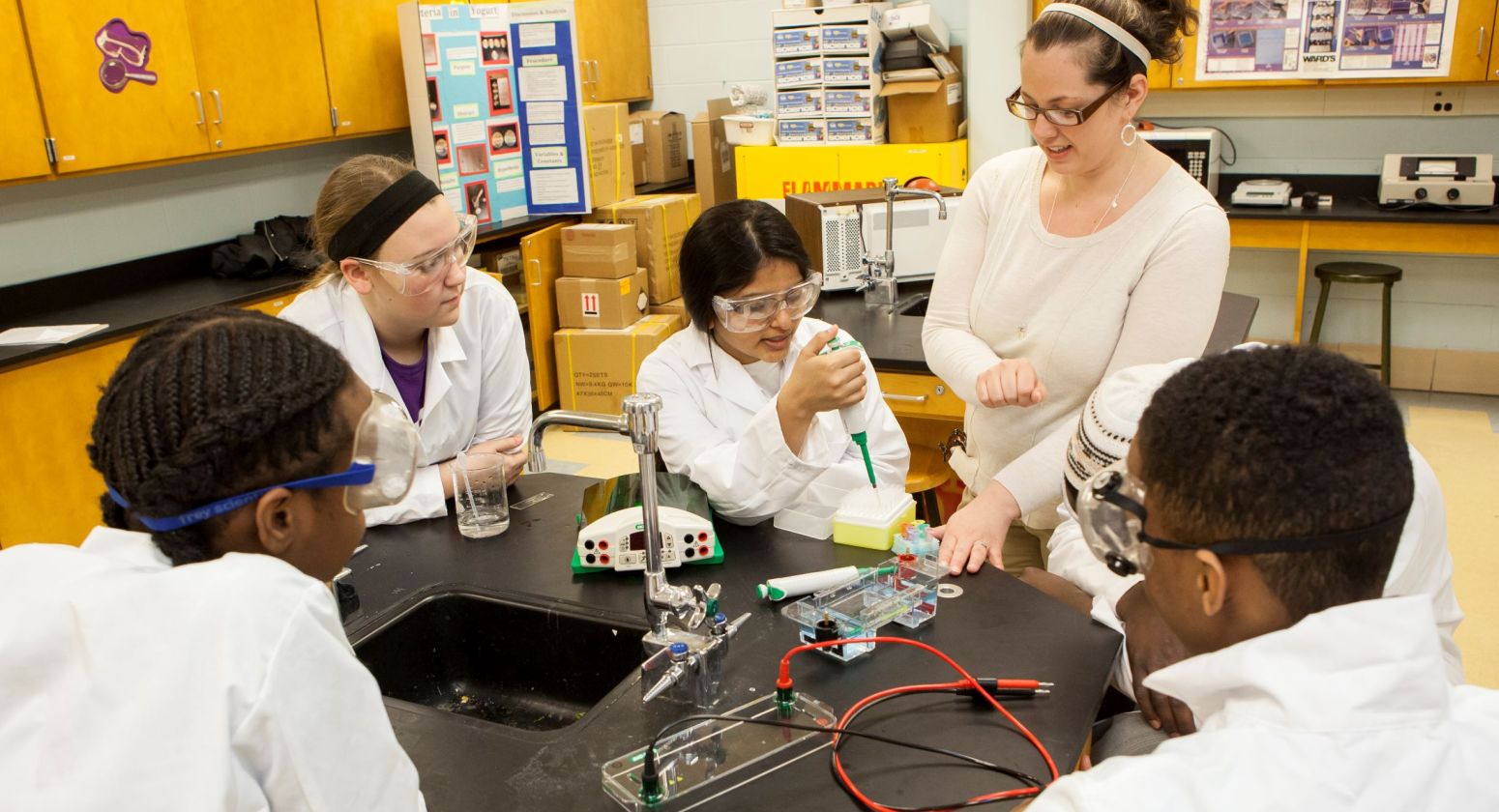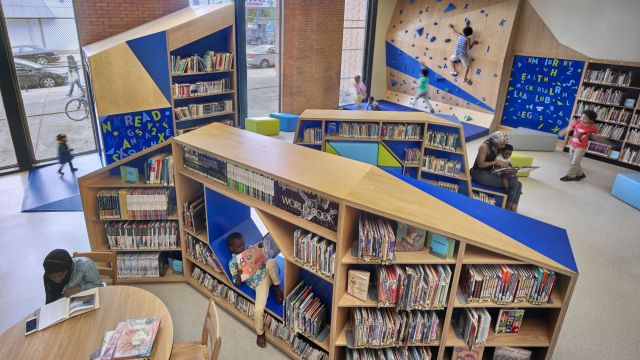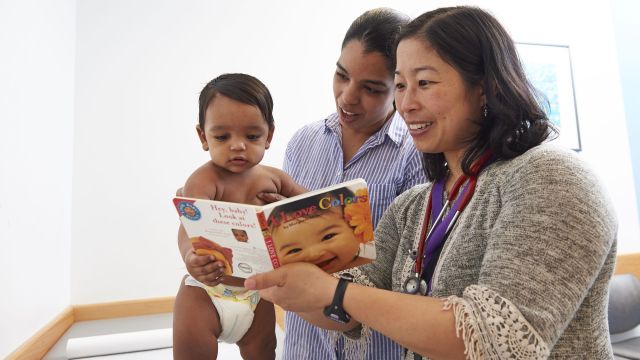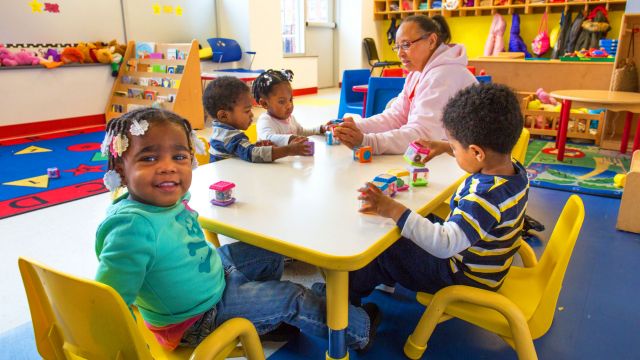Supporting High School Students on the Path to Graduation
Supporting High School Students on the Path to Graduation

The on-time graduation rate for the School District of Philadelphia’s Class of 2005 was 52%, according to the 2006 report funded by William Penn Foundation, Unfulfilled Promise: The Dimensions and Characteristics of Philadelphia’s Dropout Crisis, 2000-2005. During the six years analyzed in the study, 30,000 students left Philadelphia’s high schools without receiving a diploma. The Class of 2005 was the only one of the six cohorts studied in which at least 50% of the students graduated in four years. In response, youth-serving organizations from across the city formed a collaborative initiative called Project U-Turn to understand, focus public attention on, and – most importantly – raise Philadelphia's graduation rate and increase the number of students who re-engage with high school after dropping out. William Penn Foundation has been a strong supporter of the initiative.

Project U-Turn partners created many ways to increase the graduation and re-engagement rates, including alternative high schools that serve students who have dropped out or were at high risk of doing so; centers where students get help re-enrolling in an appropriate high school program; and in-school supports to help students stay in high school. Philadelphia Youth Network (PYN) is the backbone of Project U-Turn, convening a steering committee of cross-sector leaders, leading action teams to execute the plan, and informing an executive committee of top-level officials who align Project U-Turn goals with citywide priorities, such as workforce development.
In the years since Project U-Turn began, Philadelphia’s high school graduation rate has seen steady and significant improvement. A follow-up study published in 2015, A Promise Worth Keeping: Advancing the High School Graduation Rate in Philadelphia, found that graduation rates had increased and dropout rates had decreased since the 2006 report:
Source: A Promise Worth Keeping, 2015
Momentum has continued: In 2018, students enrolled in District schools (including Alternative Programs) had a 69% four-year graduation rate [1], an increase of 17 percentage points since 2005. The many partners in Project U-turn, including the School District, continue to work toward increasing the graduation rate by helping students re-engage with high school after dropping out, assisting students with meaningful connections to post-secondary opportunities, and supporting students to make a strong transition from middle to high school.
Students who fall off track in ninth grade may find it difficult to recover; research shows that ninth graders who fail to earn the required number of academic credits are at greater risk of dropping out.
To better understand the experiences of students as they begin high school, Philadelphia Education Research Consortium (PERC) produced "Starting Strong: A Research Series on the Transition to High School.” The series examines the numbers of ninth-grade students on track to graduation, the characteristics of on-track and off-track students, and how on-track rates differ across high schools. While on-track rates have improved recently, about one-third of first-time ninth graders did not have the credits necessary to graduate on time. This research is being used to identify groups of schools or students who need additional support and to assess progress over time.
To help ninth graders navigate the new experiences and expectations that come with high school, the School District is working with the Center for Supportive Schools to implement Peer Group Connection (PGC), a model for supporting freshmen through peer mentorship. The program taps into the power of high school juniors and seniors to serve as “peer leaders” and create a nurturing environment for younger students. Peer leaders participate in a leadership course taught by teachers who oversee the program, and they work in pairs to help guide a small group of freshmen through their first year.
An important part of keeping high school students on track is providing meaningful connections to their goals beyond graduation. Greater integration of and access to career-development activities have been demonstrated to increase retention and students’ promotion to the next grade level.
As the backbone organization of Project U-Turn for over a decade, PYN has consistently focused on providing college and career planning supports to more high school students. Through collaboration with numerous partners, PYN developed the Career Development Framework, an explicit depiction of the experiences that students should have and the competencies they should develop in order to be prepared for post-secondary education or employment. The Career Development Framework is now being used to guide efforts of high schools and city programs to support students’ college and career readiness.
Several high schools have also implemented a stronger career development focus in recent years. We supported Philadelphia Academies, Inc. to work with eight high schools to expand the Career Academy model, which focuses on experiential learning, relevance and application. By connecting student interests with career aspirations, Career Academies strive to make high school education personally relevant, providing students with a mixture of career and academic classes organized by industry themes. In particular, Roxborough High School has been highly successful in its work with Philadelphia Academies, and its career programs are now known as the Academies at Roxborough High School. In 2019, the Academy of Health Sciences and Research at Roxborough High School earned national distinction by achieving Model Career Academy status, the highest designation awarded by the National Career Academy Coalition (NCAC). The school also offers The Academy of Visual Arts Production and The Academy of Business, Technology and Entrepreneurship.
Parkway West High School is currently working with Philadelphia Academies to establish a pathway that prepares high school students for careers in early childhood education. Students who complete the program successfully will graduate with their Child Development Associate credential and college credits, which unlock entry level employment opportunities in high-quality early childhood education centers and set students on a path for additional career development.
More than 7,000 young people age 16-24 are not enrolled in school and do not have a high school diploma. Project U-Turn is committed to reaching these youth and helping them connect to an alternative program to attain job skills and/or a high school diploma or equivalency degree. Re-engaging students requires high-quality programs, awareness among young people of the opportunities they can access, and an efficient system to match interested youth with available programs.
In Philadelphia, 26 alternative schools provide options for high school completion. Some are accelerated programs for students, others support course completion in early evening classes, and one called Gateway to College provides opportunity for students to pursue their high school diploma and accrue college credits simultaneously. In an effort to continuously improve the impacts of these programs, Project U-Turn is working to design opportunities for these programs to share and learn evidence-based, impactful practices with one another. In 2018 we supported YouthBuild Philadelphia Charter School – one of the most effective alternative programs in the city – to provide professional development, coaching, and instructional materials to organizations that support high school graduation in Philadelphia. By creating a network for alternative programs to share learnings and best practices with one another, we seek to improve the experiences of Philadelphia youth who re-engage in their education.
To make sure students are aware of the programs available to them, PYN recently launched a public awareness campaign – #UTurnTogether – that elevates the stories of Philadelphia youth who re-engaged and completed their chosen program.
And, to make sure students are well-matched to a program, we supported PYN in 2019 to develop and implement an online referral and enrollment system. This tool will streamline the process for youth seeking an alternative program and help them find one that is well-matched to their needs and circumstances. PYN is working in partnership with the School District of Philadelphia, Philadelphia Works, Department of Human Services, United Way, and others.
[1] Graduation Rates for First Time 9th Grade Students in 2014-15 and Matriculation Rates for 2018 Graduates, School District of Philadelphia
Progress Timeline









More Great Learning Stories

Prioritizing Play and Learning for People, Programs, and Policies
Learn More
Engaging Families in Children’s Learning
Learn More








